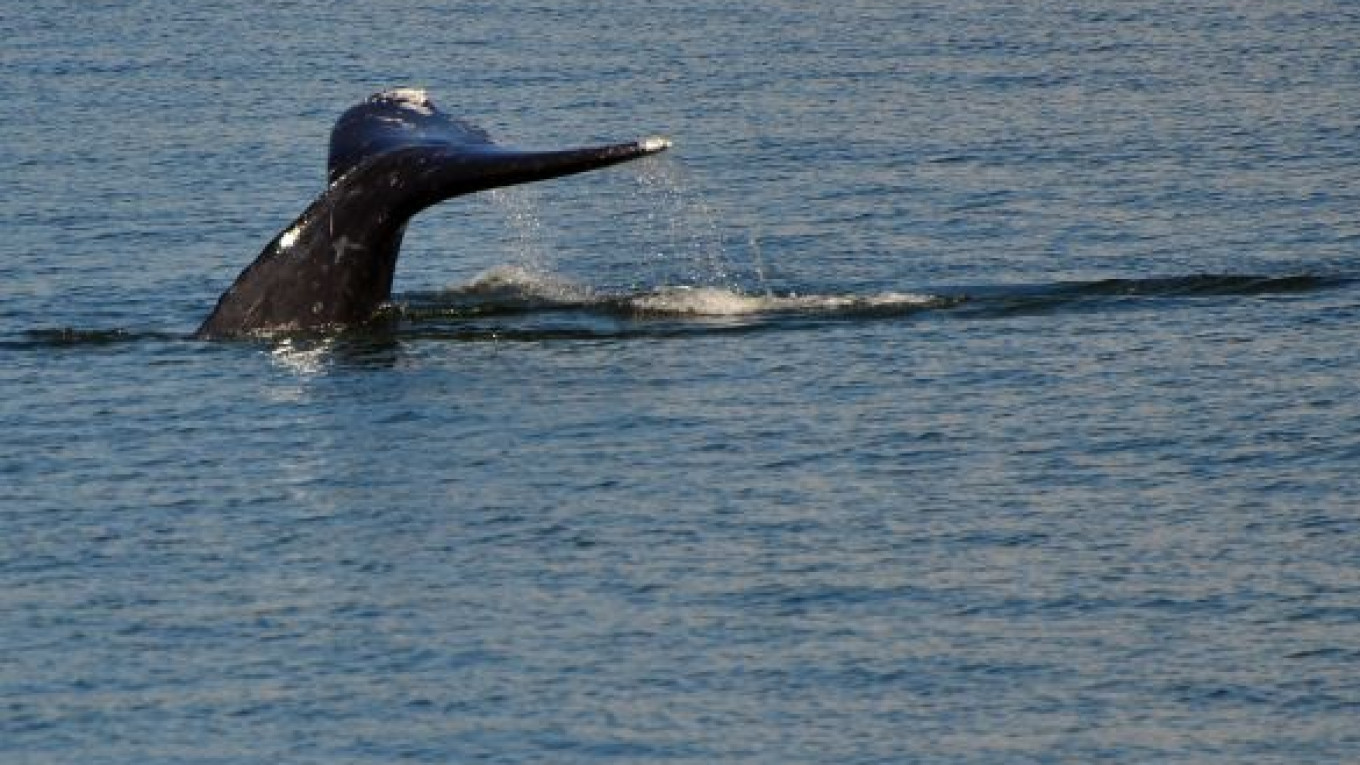Environmental activists in Russia's Far East said Tuesday that construction linked to offshore oil production had been delayed over concerns it could harm local populations of endangered gray whales.
The mandate of an expert commission examining plans by the Sakhalin-1 consortium led by US oil giant Exxon Mobil to build temporary wharfs on the Far East island of Sakhalin has been extended by two months for further consultation, the head of Sakhalin Environmental Watch Dmitry Lisitsyn said.
The Sakhalin-1 project, a landmark collaboration between foreign energy giants and the Russian authorities established in 1996, is currently developing three major offshore fields in the Sea of Okhotsk.
If the wharfs are built they would be serviced by huge barges that would make so much noise that they would deter rare western Pacific gray whales from using a key feeding ground, according to Lisitsyn.
The shallow water feeding ground is particularly important for whale calves, the ecologist said.
Sakhalin Environmental Watch is proposing that Sakhalin-1 use the more expensive option of delivering supplies by road to the existing port of Moskalvo while pursuing plans to expand drilling at the Odoptu field.
The work of the expert commission has already been delayed by one month, said Lisitsyn, who assessed the environmentalists' chances of successfully opposing the wharf construction at 50 percent.
While gray whales are relatively common in the eastern Pacific, conservationists estimate that there are only about 140 of the giant mammals in the western part of the ocean, where the species is classified as critically endangered by the International Union for Conservation of Nature.
Ecologists have voiced concern over the development of hydrocarbon reserves off Sakhalin since it began with the help of foreign companies in the 1990s.
In 2006 Anglo-Dutch energy major Shell sold a majority stake in the Sakhalin-2 project to Russia's state-owned Gazprom after a long intimidation campaign, including environmental criticism from the authorities about the potential risk to gray whales.
A Message from The Moscow Times:
Dear readers,
We are facing unprecedented challenges. Russia's Prosecutor General's Office has designated The Moscow Times as an "undesirable" organization, criminalizing our work and putting our staff at risk of prosecution. This follows our earlier unjust labeling as a "foreign agent."
These actions are direct attempts to silence independent journalism in Russia. The authorities claim our work "discredits the decisions of the Russian leadership." We see things differently: we strive to provide accurate, unbiased reporting on Russia.
We, the journalists of The Moscow Times, refuse to be silenced. But to continue our work, we need your help.
Your support, no matter how small, makes a world of difference. If you can, please support us monthly starting from just $2. It's quick to set up, and every contribution makes a significant impact.
By supporting The Moscow Times, you're defending open, independent journalism in the face of repression. Thank you for standing with us.
Remind me later.


